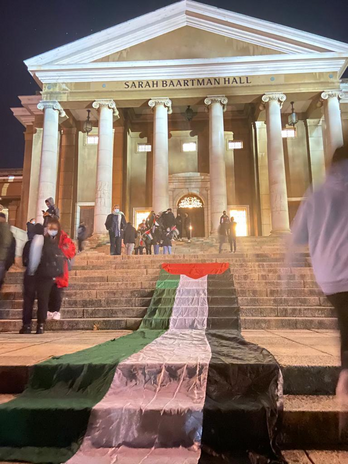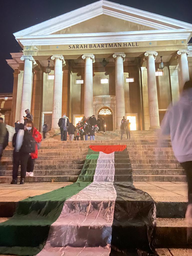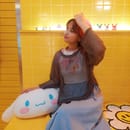Amongst all the discourse surrounding the humanitarian crisis in Palestine, and now what has aptly been dubbed the ethnic cleansing of the Palestinian people with more than 825 entire families wiped from the civil registry in 3 weeks. It’s now more important than ever to seek knowledge and education on Palestine, its history, culture, and its people, it is also important to amplify Palestinian voices in a social mediascape that continues to ice them out.
Palestine has birthed several famous poets despite the occupation; one of the most prolific Palestinian poets of this time is Mahmoud Darwish. He is often regarded as Palestine’s national poet and has several critically acclaimed published works. One of his most popular poetry books is titled, “Adam of Two Edens”. His poetry touches on a vast array of topics from the yearning to return to a home that was forcefully taken, loss and struggling under occupation to lighter topics such as romance. Darwish had the singular ability to depict love in swooping, sloping lines of poetry that could bring tears to the eyes of the most cold-hearted individuals. I mean, you’re telling me you can read the line- “They asked ‘do you love her to death?’ I said, ‘speak of her over my grave and watch how she brings me back to life.’”– and NOT physically feel like your heartstrings are being yanked? Not even re-watching the 2005 film adaption of “Pride and Prejudice” makes me feel the way some of his romance poetry makes me feel.
If you prefer reading books over poetry, there are also many fictional and non-fictional books that can offer knowledge about the current crisis and help you to understand the extent of the plight of the Palestinian people. A few fictional options are: Against the Loveless World by Susan Abulhawa, Mother Country by Etaf Rum and You Exist Too Much by Zaina Arafat. All three of these books revolve around the lived experiences of Palestinian women and many of them are powerful iterations of the strength and resilience of those who became refugees due to the forced removals and the violent occupation.
It’s all well and good to purchase and support these Palestinian authors, it’s also a good idea to crack open a few non-fictional resources to help educate yourself on the crisis. A few good non-fictional options are The Hundred Years’ War on Palestine by Rashid Khalidi and The Ethnic Cleansing of Palestine by Ilan Pappe. You should definitely also check out Light in Gaza; an anthology of writings by Palestinian authors and poets (which is one of a few eBooks which are currently available to read for free via Haymarket Books!) and finally Freedom is a Constant Struggle by Angela Y. Davis.
And if reading isn’t your thing that’s okay too because there are also many documentaries easily accessible via popular streaming platforms, one of those documentaries is Born in Gaza. Now more than ever it’s so incredibly vital to be aware and well-educated on the matters at hand, especially in the wake of so much misinformation in the social media space. So, I hope that these different avenues of literature help you to arm yourself with the knowledge of people who are so frequently misrepresented.
You might even find that many of the struggles documented in these pieces of work are awfully familiar to us South Africans. And it is true that there are many similarities between our history and theirs. There are so many parallels between the Palestinian struggle for freedom and the South African struggle for freedom after all, as Nelson Mandela said, “We know all too well that our freedom is incomplete without the freedom of the Palestinians”


